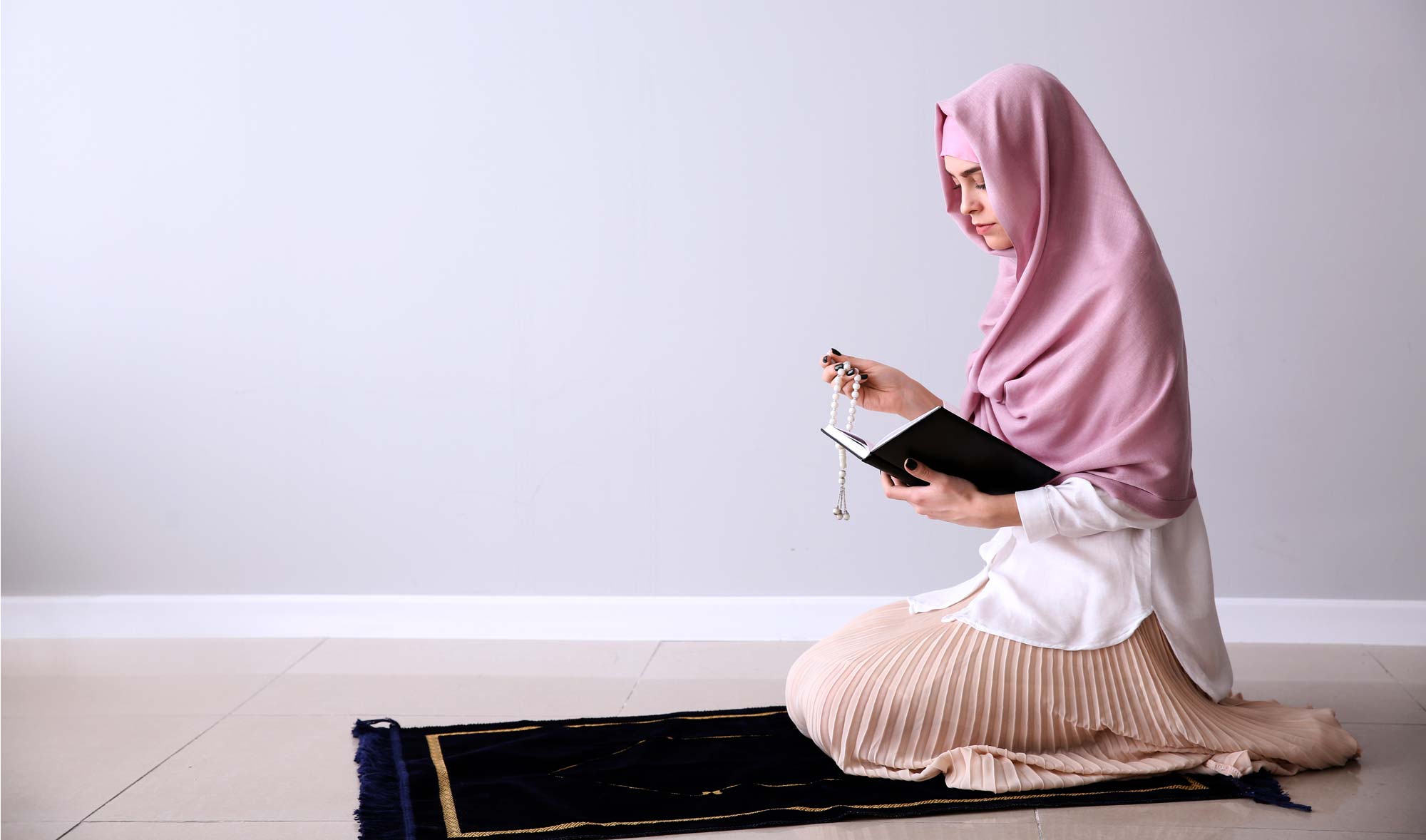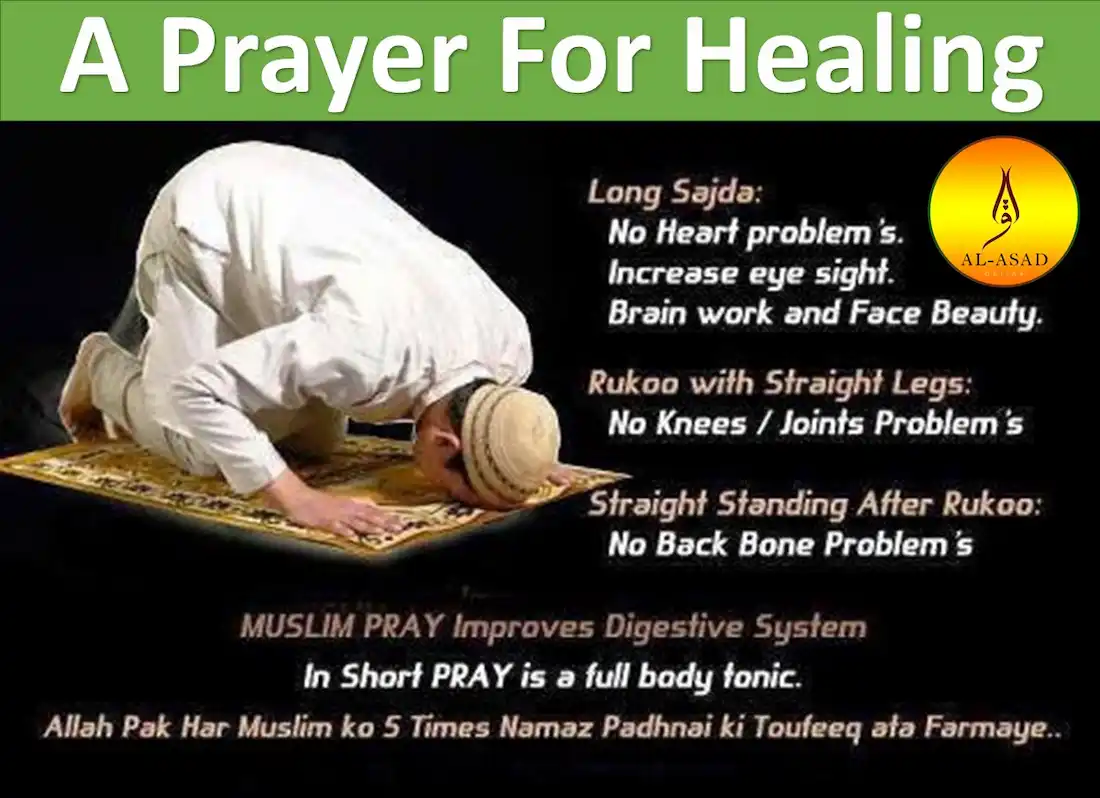Islamic Healing Prayers - Finding Comfort and Strength
Sometimes, when life feels a bit overwhelming, or perhaps when our bodies are not feeling their very best, many of us look for ways to find a sense of peace and a path back to well-being. For billions of people across the globe, a source of deep comfort and strength comes through what are often called Islamic healing prayers. These are not just words, you see, but rather a heartfelt connection to a higher power, a way of seeking solace and recovery rooted in a rich and ancient spiritual tradition. It is, in a way, about trusting in a divine plan and asking for help with a sincere heart.
This approach to seeking wellness is deeply connected to the core teachings of Islam, a major spiritual path followed by a truly vast number of people worldwide, over 1.9 billion individuals, to be precise. It is a faith that, quite simply, sees itself as a complete and universal expression of a very old, original belief system. This primordial faith, as it is understood, was shared many times through earlier prophets and messengers, including figures like Adam, Noah, and Abraham, showing a continuous thread of divine guidance through human history. So, these prayers are not just isolated practices; they are part of a much larger spiritual picture, a consistent message that has been revealed over time.
The very name of this spiritual path, "Islam," comes from an Arabic term that, literally, means "surrender." This single word, "surrender," actually illuminates the fundamental idea at the heart of the religion. It suggests a profound yielding to the will of the one Creator, a willingness to place one's trust in divine wisdom. This attitude of surrender, you know, becomes especially meaningful when someone is facing illness or hardship, as it encourages a deep reliance on God for healing and for peace of mind. It is, in some respects, about letting go and allowing a greater power to guide you.
Table of Contents
- What is the Essence of Islamic Healing Prayers?
- The Quran and its Place in Islamic Healing Prayers
- How Do Mosques Support Islamic Healing Prayers?
- The Pillars of Faith and Their Connection to Islamic Healing Prayers
- Seeking Comfort Through Islamic Healing Prayers
- Can Islamic Healing Prayers Offer Solace in Tough Times?
- Finding Guidance for Islamic Healing Prayers
- What Does Surrender Mean for Islamic Healing Prayers?
What is the Essence of Islamic Healing Prayers?
When people speak of Islamic healing prayers, they are really talking about a sincere request made to God for recovery, for strength, and for peace during times of sickness or distress. It is a deeply personal act, yet it is also something shared by a huge global community. Islam, as a spiritual path, was given to humanity through the Prophet Muhammad in Arabia during the 7th century CE. This faith is, basically, one of the world’s major monotheistic religions, meaning its followers believe in one unique Creator. This belief in a single, all-powerful God is, quite simply, the very foundation upon which the idea of seeking healing through prayer rests. You are, in a way, reaching out to the ultimate source of all power and mercy.
The core idea here is that God is the ultimate Healer, the one who truly controls all things, including health and sickness. So, when a Muslim offers an Islamic healing prayer, they are expressing their absolute reliance on this Creator. They are, in essence, saying, "I place my trust in You, and I ask for Your help." This act of asking, this heartfelt request, is known as "dua" in Arabic. It is considered a very powerful form of worship, a direct conversation with the divine, you know. It’s not just about reciting specific words, though there are certainly traditional supplications; it is more about the sincerity of the heart and the belief that God hears and responds.
The concept of "surrender," which is what the word "Islam" means, plays a very important part in how these prayers are approached. It’s about accepting God's will, even when things are difficult, and trusting that there is wisdom in every situation. This does not mean one stops seeking medical help, not at all. Instead, it means combining practical efforts with spiritual reliance. So, a person might visit a doctor, follow medical advice, and at the same time, earnestly engage in Islamic healing prayers, believing that both are pathways to wellness, with the ultimate outcome resting with the Creator. It is, in some respects, a holistic approach to well-being.
The Quran and its Place in Islamic Healing Prayers
Muslims hold a deep belief that their sacred text, the Quran, is the absolute word of God, exactly as it was given to the Prophet Muhammad. This holy book is seen as a source of guidance, wisdom, and comfort for all aspects of life, and this certainly includes times of illness and distress. When people engage in Islamic healing prayers, the Quran often plays a central role. Reciting certain verses from the Quran is believed to bring peace to the heart and to invite blessings that can help in the process of recovery. It is, in a way, like listening to a divine message of hope and reassurance.
The words of the Quran are considered very powerful, and simply listening to or reciting them can have a calming effect on the soul. For someone feeling unwell, this can be incredibly soothing. There are, for instance, specific chapters or verses that are often recited with the intention of seeking healing, known sometimes as "shifa" (healing). This practice is not about magic, you see, but rather about invoking God's mercy and power through His own words. It is a way of strengthening one's connection to the divine and affirming faith even in challenging circumstances. So, the Quran is not just a book of rules; it is also a source of spiritual remedy for those seeking Islamic healing prayers.
The name "Islam" itself was, in fact, instituted by the Quran, which further shows how central this book is to the faith and its practices. For Muslims, the Quran is not just a historical document; it is a living guide that speaks to the human condition across all times and places. Its verses offer comfort, remind believers of God's immense power and compassion, and encourage patience and gratitude. These messages are, in fact, very relevant when one is seeking healing. They provide a framework for understanding suffering and for maintaining hope, which is, honestly, a vital part of any healing process. It is, you know, a very profound connection.
How Do Mosques Support Islamic Healing Prayers?
Mosques are places where Muslims gather to worship, and they play a pretty important part in the community's spiritual life, including practices related to Islamic healing prayers. These buildings are not just structures; they are, in some respects, community hubs, places where people come together to pray, to learn, and to support one another. When someone is ill, the collective prayers offered in a mosque can be a source of immense strength and solidarity. It is, in a way, like having a whole community praying for your well-being.
Within the mosque, the atmosphere of collective worship can be very uplifting. When people stand shoulder to shoulder, all facing the same direction, all turning to the same Creator, there is a powerful sense of unity. This shared act of devotion can, you know, make individual prayers feel even more meaningful. For those seeking Islamic healing prayers, knowing that their community is also praying for them can bring a great deal of emotional and spiritual comfort. It helps to lessen feelings of isolation and reminds them that they are part of something larger. This communal aspect is, basically, a very significant part of the faith.
Beyond the formal prayers, mosques often serve as centers for support and spiritual guidance. People might visit the mosque to seek advice from religious scholars, to read the Quran, or simply to find a quiet space for personal reflection and supplication. This environment fosters a sense of peace and connection that can be very conducive to healing, both physically and spiritually. The feeling of being in a sacred space, surrounded by others who share a similar belief, can, honestly, deepen one's sense of reliance on God during difficult times. It is, quite simply, a place where faith feels very tangible.
The Pillars of Faith and Their Connection to Islamic Healing Prayers
Being a Muslim involves adhering to certain fundamental practices, often called the pillars of Islam. Each of these pillars is a very important part of living a Muslim life, and they all, in some way, connect to the idea of Islamic healing prayers. The most direct connection comes from the pillar of prayer itself, known as "Salat." This is the ritual prayer performed five times a day, facing towards the Kaaba in Mecca. These regular prayers are a constant reminder of God's presence and one's dependence on Him, which is, you know, a crucial mindset when seeking healing.
The consistent practice of Salat helps to build a deep spiritual discipline and a habit of turning to God in all circumstances. So, when someone is unwell, the foundation of regular prayer is already there. This makes it very natural to extend those prayers to specifically ask for health and recovery. It is, in a way, like keeping a constant line of communication open with the divine. The other pillars, like giving to charity (Zakat), fasting during Ramadan (Sawm), and performing the pilgrimage to Mecca (Hajj), also reinforce a sense of community, self-discipline, and reliance on God, all of which can contribute to a person's overall well-being and their approach to seeking healing.
The act of "surrender," which is the meaning of "Islam," is truly embodied in these pillars. When a person performs these acts of worship, they are, in essence, affirming their commitment to God's will. This deep sense of submission and trust is, quite simply, what empowers Islamic healing prayers. It is not just about asking for something; it is about aligning one's will with the divine will, believing that God knows what is best and that He is the ultimate source of all good, including health. This comprehensive approach to faith means that seeking healing through prayer is a natural extension of one's daily spiritual practice. It is, more or less, integrated into every aspect of life.
Seeking Comfort Through Islamic Healing Prayers
For someone going through a period of illness or distress, the act of engaging in Islamic healing prayers can bring a truly profound sense of comfort. It is, in a way, a spiritual embrace, a feeling that one is not alone in their struggles. The very act of turning to God, expressing one's fears and hopes, can be incredibly therapeutic for the soul. This comfort comes from the deep belief that God is All-Merciful and All-Compassionate, and that He hears every sincere plea. It’s a very personal connection, you know, that offers solace when human efforts feel limited.
The teachings of Islam emphasize patience in adversity and gratitude in all circumstances. When someone is ill, Islamic healing prayers often include expressions of patience with the trial and gratitude for God's blessings, even the small ones. This perspective helps to shift focus from despair to hope and acceptance. It is, basically, about finding strength in vulnerability and recognizing that challenges can also be opportunities for spiritual growth. This mindset is, frankly, a very powerful tool for emotional and spiritual healing, alongside any physical recovery.
The vast community of Muslims, over 1.9 billion followers worldwide, means that this shared experience of turning to God for healing is a collective one. Knowing that countless others are also engaging in similar prayers, relying on the same Creator, can foster a sense of belonging and mutual support. This spiritual solidarity can, you know, be a source of immense comfort. It reinforces the idea that even in personal suffering, one is part of a larger family of believers who share a common faith and a common source of hope. It is, quite simply, a very unifying experience.
Can Islamic Healing Prayers Offer Solace in Tough Times?
Yes, absolutely, Islamic healing prayers can offer a deep and lasting solace during tough times. When faced with illness or hardship, people often feel vulnerable and overwhelmed. These prayers provide a structured way to express those feelings and to place one's trust in a higher power. The act of prayer itself, the quiet moments of reflection and supplication, can calm a troubled mind and bring a sense of inner peace. It is, in a way, a spiritual anchor when the waters of life feel very turbulent.
The belief that Islam is a complete and universal version of a primordial faith, revealed many times through earlier prophets, means that its teachings are seen as timeless and applicable to all human experiences, including suffering. This long history of divine guidance offers a framework for understanding life's challenges and for finding meaning in them. So, when someone offers Islamic healing prayers, they are tapping into a tradition that has, you know, guided countless individuals through similar difficulties over centuries. This connection to a broader spiritual heritage can be incredibly reassuring.
Furthermore, the reminder that God is the ultimate Healer and Sustainer helps to alleviate feelings of helplessness. The individual is not left to face their struggles alone; they have a direct channel to the divine. This spiritual reliance, coupled with the practical steps of seeking medical attention, creates a comprehensive approach to well-being. It is, in some respects, about addressing both the physical and the spiritual needs of a person. The solace comes from knowing that one has done their part and has placed their trust in the One who has ultimate control. It is, you know, a very comforting thought.
Finding Guidance for Islamic Healing Prayers
For anyone looking to learn more about Islamic healing prayers or about Islam in general, there are, thankfully, many resources available. The community offers a wide range of free materials that can help people understand the faith and its practices better. These include, for instance, introductions to Islam, free e-books that delve into various topics, and even specific guides like a Muslim funeral guide or a Hajj guide. These resources are, basically, designed to help people connect with the faith in a meaningful way.
Learning about the Quran, which Muslims believe is the absolute word of God, is also a very important step. There are Quran studies available that can help individuals understand its verses and their profound meanings. This deeper understanding can, you know, enrich one's personal prayers, including those offered for healing. The ability to recite or listen to the Quran with comprehension can make the act of seeking divine assistance feel even more personal and powerful. It is, in a way, like having a direct line to divine wisdom.
Additionally, there are newsletters, and videos on how to become Muslim, and even guidance on things like a last will and testament from an Islamic perspective. All these resources are part of a larger effort to provide clear and accessible information about the faith. They can help individuals not only learn about Islamic healing prayers but also understand the broader context of what it means to be a Muslim, which, as the Arabic term "muslim" literally means, is "one who surrenders" to God. This comprehensive support system is, honestly, very helpful for anyone seeking to deepen their understanding or practice. It is, pretty much, a complete package of information.
What Does Surrender Mean for Islamic Healing Prayers?
The concept of "surrender," which is the literal meaning of the Arabic term "islām," is truly at the heart of Islamic healing prayers. It is not a passive giving up, you see, but rather an active, conscious decision to place one's trust and reliance entirely upon God. When someone offers these prayers, they are, in essence, acknowledging that while they will do their part—seeking medical advice, resting, taking care of themselves—the ultimate outcome rests with the Creator. This kind of surrender brings a profound sense of peace and acceptance.
This surrender means accepting God's decree, whether it is healing or continued trial. It is about understanding that God's wisdom is beyond human comprehension and that there is good in every situation, even if it is not immediately apparent. For Islamic healing prayers, this translates into a deep sense of contentment, knowing that one has turned to the ultimate source of help and has placed their complete trust in Him. This attitude can, you know, reduce anxiety and despair, allowing the individual to focus on recovery with a hopeful heart. It is, in a way, a very liberating perspective.
The Prophet Muhammad, who promulgated Islam in Arabia in the 7th century CE, exemplified this complete surrender in his own life, even when facing immense challenges. His teachings and example guide Muslims in how to approach all aspects of life, including illness, with patience, gratitude, and reliance on God. So, when people engage in Islamic healing prayers, they are following in the footsteps of a long line of believers who have found strength and solace in this profound act of surrender. It is, basically, a cornerstone of their spiritual outlook. This deep spiritual connection is, honestly, a very powerful force.


